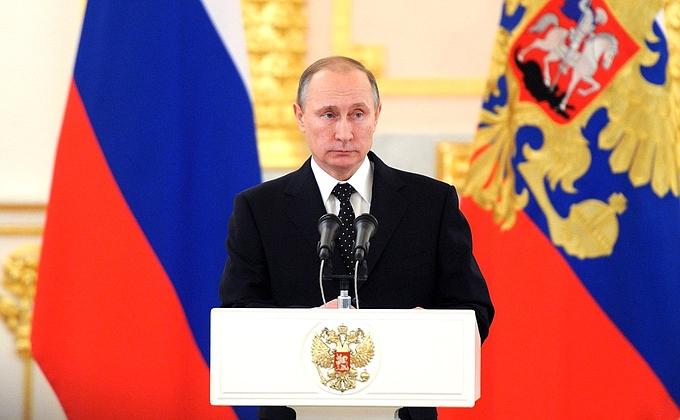Impact of sanctions against Turkey on Russia’s economy divides opinion

Opinion is divided on whether the raft of sanctions Russia imposed against Turkey after Turkish aircraft shot down a Russian Su-24M will help or harm the fragile Russian economy.
Russia’s President Vladimir Putin called the downing of the warplane a “backstab” from a country that he considered a friend, and today signed a decree imposing economic sanctions against Turkey after his Turkish counterpart Recep Tayyip Erdoğan refused to officially apologize.
The decree includes the prohibition or restriction of the activities of Turkish organizations in Russia, the ban on the import of Turkish goods, a ban on the employment of workers from Turkey, a partial suspension of the visa-free regime and a ban on charter flights between Russia and Turkey.
According to the head of the lower house Committee on Foreign Affairs Alexei Pushkov, the decree would mostly affect tourism in Turkey, as Russians contribute about four billion dollars to Turkey’s economy, and it will damage businesses that operate on export to Russia.
“This is a significant segment of the Turkish economy, because Turkey was the fifth by the value of trade and economic partner of Russia,” he said. “Turnover was $ 30 billion last year, and this, of course, will have a negative impact on these enterprises.”
He added that for Russia, this is an opportunity to develop its agricultural sector by running a program of import substitution and domestic tourism, which may increase to five million people.
Analysts in Russia, however, are not as optimistic as the government.
They point out that as Turkey’s share in the import of agricultural products in Russia has reached 38%, the embargo will further exacerbate the inflation rate currently running at 16%, with the price of tomatoes, oranges, lemons and grapes expected to sky rocket.
Meanwhile the tourism infrastructure needs to be developed to the level of quality level Russians are accustomed abroad and this will take time, they point out.
Another sector that is not prepared to the sanctions is construction.
On Saturday, the Minister of Labour and Social Protection of the Russian Federation Maxim Topilin reported that the quota for the citizens of the Turkish Republic in 2016 will be significantly lower compared to 2015, when it was more than 67 thousand work permits.
“Reduced quotas for Turkish nationals to work in Russia may affect the number of skilled workers in the construction industry,” explained the scientific director of the State University Higher School of Economics Yevgeny Yasin.
Yasin was skeptical that it will be able to quickly replace qualified construction personnel.
Low oil prices and sanctions over the Ukraine crisis pushed Russia’s economy into a recession this year, with gross domestic product shrinking by 4.1 percent in the third quarter of 2015, after declining by 2.2 and 4.6 percent in the first and second quarter respectively.



